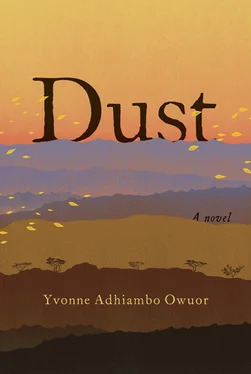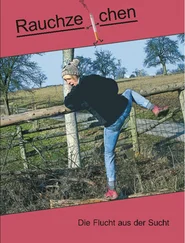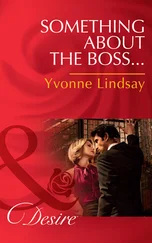So Selene returned to Kenya in tears, just as the Nandi flame trees were in crimson blossom. Outbreak of luxuriant redness; Spathodea campanulata in glory. She reached her Naivasha gates under the light of a dry-season full moon.
“You are lovely,” Hugh said, when he saw her. “Missed you so, old girl.”
A blur of battling dreams — Kenya hopes in ceaseless conversations. What would the country be? Half a year later, as Hugh stood, neat gin and Flowers of Kenya book in his hand, he caught Selene’s eye. “I love this country.”
A warning?
Kenya had since added muscles and height to Hugh.
His sudden excited boy’s laugh in a grown man’s body. She loved that laugh.
Time.
Princess Elizabeth and the duke of Edinburgh came to Kenya.
The princess became a queen.
A rhythm.
Friends, farming, dreams; parties, music, drink, and barbiturates to ease the unease. Two weeks later, Selene was tending the Naivasha garden in the dry heat and watching as herdsmen sheared the new sheep.
“Hereditary ineptitude,” Hugh burst out.
English class-system rules rigorously applied in the colony had refused Hugh’s application for membership at the Muthaiga Club. It meant he despised the governor, Mitchell.
Months slogged on.
Nairobi and Naivasha Club weekends. Selene danced. Got drunk. Flirted. Would have committed adultery if her target of affection had not spotted more youthful prey. Danced some more, played backgammon, gossiped about an English social season she had no part in, and hosted teas for the Thompsons.
In the early part of 1952, the Kenya Weekly News sustained Governor Mitchell’s perspective that “the general political feeling in Kenya was better than he had ever known it for many years.”
Hugh had thrown the newspaper down. “The fool has a wooden skull and a forked tongue.” He threw Selene’s saucer at the wall, where it smashed up.
More of Hugh’s “my”s:
My country. My land. My dream.
My people .
“My people built this land, named it, toiled, built, and died for it. Won’t let that bugger destroy it.”
“What’re you going to do?” Selene muttered, the question a waste of breath.
Governor Mitchell left.
Hugh was a guest at the good-riddance party held at the club. He gave the third toast to Acting Governor Potter. Selene drank down the toast and then some more. She tried to fox-trot, because Hugh had disappeared with a boy-figured woman on his arm, and she was not the only one who had noticed how he had slithered out through the kitchen door.
New favorite dinner topic: Mau Mau.
Subtheme: kiapu —the oath, the covenant.
Its dreadful mystery, the herald of shadows.
Favorite rumor: insurrection.
Favorite fear: death of the European.
The unspoken: loss of a nation, nowhere else to go.
The fear: requiem for an ideal.
Selene thought: I told you so .
She waited for Hugh to return to her.
News: The murder of a settler family in the Aberdare Range, children included. Crop fires, and the threat to Hugh’s perfect plans for the perfect country where they could live out perfect lives.
Mau Mau. Acrid fear.
Mwihaki saw threat everywhere. “Memsahib, we must be careful.”
Sundowner gin-and-tonics filled with cigar smoke and, suddenly, numerous plans to leave, head south or north. A woman named Rosaline who kept Arabian horses distributed Save Our Country doilies. When Hugh returned to their Naivasha home, Selene concentrated on pouring his cup of tea and counting the blotches on his skin. Dark tints. Her father would be appalled. She observed herself splitting, wondered which one of her different selves restrained itself from poking holes in Hugh’s body before splitting his stomach with a machete and shearing his skin. She smiled at Hugh, prized milling thoughts apart, brushed away the variety of insects that attempted to bite, perch, and crawl on and feed off them.
Like the country.
This is my country . Foolish Hughie. The country chose its prey. Seduced them, made them believe they owned it, and then it gobbled them down, often in the most tender of ways — like a python. When Selene was alone, she laughed and laughed, tears marking her face. Despair. She needed to go back home.
In Nairobi. An idea — Kenyatta. A rally. A metaphor. Sugarcane. Unease. Chaos fluttered. Kenya News Weekly , October 7. Senior Chief Waruhiu wa Kungu’s car had been forced off the road and he was shot four times at close range. Rumors. Three battalions of the King’s African Rifles garrisoned. And the Fourth Battalion from Uganda. And two companies of the Twenty-sixth Battalion from Mauritius.
A wind-whiny gloaming. A chill seeped into Selene’s room. Agwaro fidgeted near the door until Selene asked, “What is it, boy?”
“Memsa’p …” He entered and stood at attention. “Something bad’s on its way.”
“Don’t be foolish,” snapped Selene with a shiver, and huddled into her pink-striped cardigan.
Husky-voiced answer: “ It wants human blood.”
“A soldier like you,” Selene mocked, “afraid?”
A hesitation, as if he had something more to say. Reconsidered: “No memsa’p,” Agwaro answered, and slunk away.
Selene stared at a large spot above her door. She had long sensed the footfall of advancing predatory shadows.
Twelve Hastings aircraft were making their way to Kenya. Mid-conversation at night in Naivasha on October 21, 1952, Hugh, red-faced and bright-eyed, plowed to Selene’s side and whispered, “The Lancashire Fusiliers are here.”
The next morning, the new Governor Baring’s radio voice: a state of emergency had been declared in Kenya. The previous night, Operation Jock Scott: 183 arrest-and-detention warrants. The fusiliers patrolled Nairobi’s streets. The Kenya Police Reserves and Kenya Regiment were summoned to active duty. Two days later, Senior Chief Nderi was hacked into meat-sized chunks by pangas in the hands of his people. The next day, Kenya , the Royal Navy cruiser, docked in Mombasa. There were men on board.
A week later, the solitary Eric Bower was taking a bath when he was slaughtered with his servants. It was difficult to tell where his body ended and those of his servants’ began.
One balmy dusk, a few days later, Hugh donned a nondescript uniform, waltzed up to Selene, and swung her in his arms. “Our country needs us,” he intoned.
Our country? “Where are you going?”
She should have asked that question long, long ago.
He was going to Central Headquarters, Special Branch, to attend a meeting with Sir Percy Sillitoe.
“Sillitoe?” Selene said, frowning. “Director-general of the British Security Service?” Her voice ended in a screech. “What’re you doing with those people, darling?”
“For heaven’s sake, Selene, be an adult!” He rubbed his head, a perplexed boy’s gesture. “This is my work. You know that.”
She did not.
“You never said …”
“Didn’t I?”
She sat down.
Didn’t ask , she conceded to herself. We do not talk anymore, Hugh . She looked through him, not seeing him.
Felt his kiss — warm, hard lips against her forehead.
She breathed him.
“Power is useless if it cannot be expressed,” Hugh murmured.
Leave him alone , she pleaded with the land. Forgive him . She looked over her shoulder at the red setting sun, its light bleeding into plump clouds. Waited.
Selene tallied the State of Emergency dead.
Picked up smoking to mark time.
Operation Anvil.
Operation Hammer.
Relocated lives.
Operation First Flute.
Читать дальше











